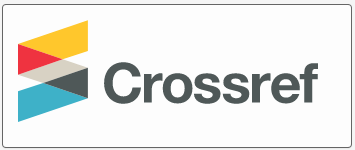Aesthetic phenomenon of the reader in Givi Margevlashvili's prose (Who "is a reader")
DOI:
https://doi.org/10.52340/idw.2021.522Keywords:
Postodernism, Givi Margvelashvili, Metaprose, ontotext, deconstructionAbstract
The main characteristic of Georgian postmodernism has become metaprose or the principle of double coding - text within text, in which the effect is achieved in the form of linguistic games. When we talk about Georgian postmodernism, the greatest innovator is the famous German-speaking Georgian author Givi Margvelashvili. His work is a peculiar expression of postmodern aesthetics and deserves special attention, since his works have not been properly researched in terms of the deconstruction of classical texts.Givi Margvelashvili, in fact, lived under two dictatorships - fascism and communism. A family sacrificed to repression ... Spending the best years of life under pressure ... Constant persecution and harassment ... After all this, the writer's words that he is the protagonist of his book and has a flat in the book alone, intensifies the sense of the logic of fate.The subject of the Georgian postmodernist author's passion is the concept of the French philosopher Gilles Deleuze, according to which we do not draw dots, but draw lines. This means that literary characters are not even "buried" in their own texts, but they also run away from the texts. This phrase will probably be used as a starting point for Givi Margvelashvili's prose - Stop death in the texts! Considering the Kantian maxims, he is sincere with the reader and offers us the highest principle, the observance of which would be desirable of a universal nature. His prose is a text of the text, a metaphor, he calls himself an ontotext and believes that the characters in the book are determined by the same lyrical characters, they try their hand at the reader and can do nothing but what the author himself has determined. Margvelashvili becomes the savior of the book's characters, studies their existence and believes that people are defined by the text. The purpose of this paper is to show what kind of readers the audience of Margvelashvili's characters has, who the reader is in his understanding, what metaphorical attitudes the latter offers and what is the dichotomy of the relationship between the reader and the book characters.
Downloads
References
ბარამიძე გ.,ფანტაზიადამსოფლმხედველობა,თბ., გონი, 1993.
ბუხრიკიძე დ., წერტილებიდახაზები: გივიმარგველაშვილი - დაბრუნებადროსადასივრცეშიხეტიალისშემდეგ, ცხელიშოკოლადი, თბილისი, 2012. - ISSN 1512-2220. - ივნისი. - N80. - გვ.118-119.
გასეტი ო.-ი.,ხელოვნებისდეჰუმანიზაცია,თბ., ლომისი, 1992.
გაფრინდაშვილი ნ., მირესაშვილი მ.,ლიტერატურათმცოდნეობის საფუძვლები, თბ., „მერიდიანი“,2014.
ლიოტარი, ჟ. ფ.,პასუხი კითხვაზე - რა არის პოსტმოდერნი? - ჟურნალი „პოლილოგი“, თბილისი, 1994, N4, გვ. 195-207.
ტენი ი.,ხელოვნების ფილოსოფია, თბ., საქართველო, 1990.
ფუკო მ.,სიტყვები და საგნები, თბ., დიოგენე, 2004.
ცინცაძე გ.,გაგების მეთოდი ფილოსოფიაში და პიროვნების პრობლემა /ფილოსოფიის ინ-ტი. - თბ., მეცნიერება, 1975
ყულიჯანიშვილი ა., ესთეტიკა, თბ., მერიდიანი, 2006.
ჰაიდეგერი მ., დასაბამი ხელოვნების ქმნილებისა, თბ., „გონი“, 1992.
ჰაიდეგერი მ.,ყოფიერება და დრო, თბ., 1989.
Делез Жиль, Фантазм и современная литература, Логика смысла, Москва, 1998, Стр. 366-440.
Делез Жиль, Гваттари Феликс, Анти-Эдип, Екатеринбург: У-Фактория, 2007.
Eco Umberto, Zeichen / Einführung in einen Begriff und seine Geschichte, übers. Aus Ital. Von Günter Memmert, Suhrkamp Verlag, Frankfurt am Main, 1977
Gadamer H.-G., Der Anfang der Philosophie, uebers. Aus Italienisch von Joachim Schulte, - Stuttgart 1993 (= Reclam Universal-Bibliothek Nr. 9495)
Margwelaschwili G., Ontotextualität in Philosophie und Kunst, aus: Giwi Margwelschwili, Leben im Ontotext, Neubrandenburg: 1993.







